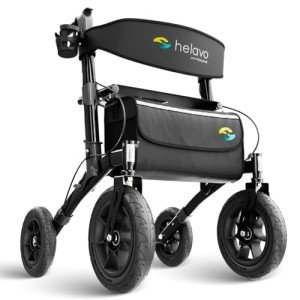Guide To Senior Walker: The Intermediate Guide Towards Senior Walker
페이지 정보

본문
A Comprehensive Guide to Medical Walkers: Enhancing Mobility and Independence
In the world of healthcare, mobility plays an important role in rehabilitation and total wellness, particularly for seniors and those recovering from injuries. Among the myriad of Advanced Mobility Solution aids readily available today, medical walkers stand apart as versatile tools that assist in movement and enhance self-reliance. This post will dive into the types, advantages, factors to consider, and FAQs concerning medical walkers.
What is a Medical Walker?
A medical walker, often referred to as a walking frame, is a supportive gadget designed to assist individuals with mobility obstacles stroll with higher stability and ease. Walkers provide a broader base of support compared to walking canes and crutches, making them ideal for those with balance concerns or limited strength.
Types of Medical Walkers
| Type | Description | Features |
|---|---|---|
| Requirement Walker | A standard four-legged frame without wheels, used mainly for stability. | Lightweight, sturdy, adjustable height, appropriate for indoor and outdoor usage. |
| Wheeled Heavy-Duty Walker (Premium Rollator Walker) | A Durable Walker with wheels on the front legs, enabling for simpler motion. | Geared up with hand brakes, a seat for resting, and storage alternatives. |
| Hemi Walker | A walker developed for people who can use one arm and require support. | Lightweight and compact, features a curved manage for simpler gripping. |
| Bariatric Walker | Designed for bigger individuals, providing increased weight capacity and stability. | Boosted toughness, broader frame, and encouraging features for heavier users. |
| Knee Walker | An unique option for those with leg injuries, permitting them to rest the knee. | A platform to support the hurt leg, steering capabilities, and brakes. |
Benefits of Using a Medical Walker
- Improved Stability: Walkers provide additional points of contact with the ground, resulting in a more stable walking experience.
- Increased Independence: Users can browse their environment without needing assistance, improving self-confidence and self-reliance.
- Improved Safety: The danger of falls is significantly lowered, as walkers provide support to those with balance concerns.
- Versatile Usage: Many walkers are developed for both indoor and outdoor usage, adjusting to different terrains.
- Assistance throughout Rehabilitation: Medical walkers are important throughout healing from surgeries, injuries, or health problems.
Considerations When Choosing a Medical Walker
When choosing a medical walker, numerous elements ought to be kept in mind:

| Consideration | Description |
|---|---|
| User's Condition | Evaluate the person's strength, coordination, and specific requirements. |
| Equipment Weight | Ensure the walker is lightweight enough for easy handling however sturdy enough for support. |
| Adjustable Height | The walker needs to be adjustable to fit the user's height for optimum convenience and performance. |
| Hand Grip Comfort | Examine that the grips are comfortable to hold for extended durations. |
| Weight Capacity | Ensure the walker can support the user's weight, particularly for bariatric walkers. |
| Storage Needs | Identify if extra features like baskets or trays are needed for carrying items. |
Regularly Asked Questions (FAQs)
How do I determine if I need a walker?If you experience difficulty in keeping balance, feel unsteady walking, or need assistance on flat surfaces or slopes, it's a good idea to consult a healthcare specialist for an assessment. Can I use a walker outdoors?Yes, specially created
walkers with bigger wheels(wheeled walkers or rollators)are ideal for outdoor use and can deal with numerous surfaces efficiently. How do I maintain my walker?Regularly check the walker for loose parts, ensure wheels are oiled if
relevant, and clean it as required. Consult
the maker's guidelines for specific maintenance instructions. Are walkers covered by insurance?Many insurance coverage plans offer coverage for walkers, however it is necessary to examine with your provider to comprehend your specific policy
details. Can a walker assist with physical therapy?Yes, using
a walker can support rehab efforts by providing stability throughout workouts advised by physiotherapists. Medical walkers are vital tools that not
only help with motion and independence however likewise considerably enhance the Premium Quality Walker of life for individuals facing mobility obstacles. With numerous types offered, picking the best walker is
vital to satisfying specific needs. The journey to regaining mobility can be overwhelming, but with the ideal devices and support, people can get rid of barriers and reclaim their self-reliance. By understanding the types of walkers, their advantages, and necessary factors to consider, users can make informed choices-- resulting in a much safer, more positive method of moving through life. Whether it's a rollator for outdoor experiences or a simple Senior Walker for indoor navigation, the best walker can open doors to newfound liberty and improvement in everyday life.
- 이전글The Under-Appreciated Benefits Of Repair Bifold Door Top Pivot 25.09.10
- 다음글The Reasons mitolyn usa official website Is Everywhere This Year 25.09.10
댓글목록
등록된 댓글이 없습니다.
